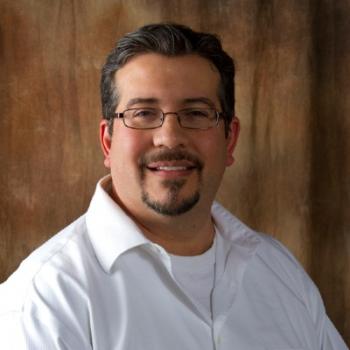Being organized helps with mental health while at home
As many Americans are finding their schedules and routines upended by COVID-19, Lipscomb's experts have a few tips for staying mentally healthy during this unique time.
Chris Gonzalez |

Chris Gonzalez, assistant professor and director of the Marriage and Family Therapy program at Lipscomb, shares few tips for staying mentally healthy in this of schedules and routines being disrupted due to COVID-19. Visit here for more information about Lipscomb's Marriage and Family Therapy program.
*****
Mental Health While at Home (a lot)
One of the most important things many of us have lost during the pandemic is the organizing functions of our time. Work and school structure our time with appointments, deadlines, and tasks. These organizing structures often determine where we will be and for how long. These structures also answer the question, "What is next?" Knowing what is next is healthy and a constant affirmation of one's own agency, even if it is in a job or school.
In losing these organizing functions, we must now construct that organization for ourselves. When every day is Saturday, you lose the magic of Saturday.

Chris Gonzalez
1. Organize Your Time and your Things.
Your time and your things matter. Tell your time and your things what to do. Fill time slots with what you want and need to do or those times slots will get filled with something else. Binge-watching or binge-gaming can devour time and build up future stress, regret, or unhealth. Put your stuff where it needs to go. This is not about perfectionism, but it is about use of space. Each person has a critical mass of clutter that can wear on mental health.
2. Make plans.
When you make plans, the future does not look empty and bleak. Put some life into that time out there. When you have something to look forward to, it increases the chances you'll get to that thing. Knowing that something productive, essential, meaningful, or fun is coming helps give confidence that the future is a good place to go - and that is where we are all going.
3. Take initiative.
"No excuses. No regrets. Do it now." Dr. McKelvain taught me this line he used when helping train Olympic athletes. Assert yourself into time and space. You were meant to do this. You were not created to passively be shaped by the most assert force around you. You were created to be you and the rest is context. Procrastinating wears on health.
Now as we are learning how to be home, a lot, putting these three things into place will help to increase the chances of good mental health.